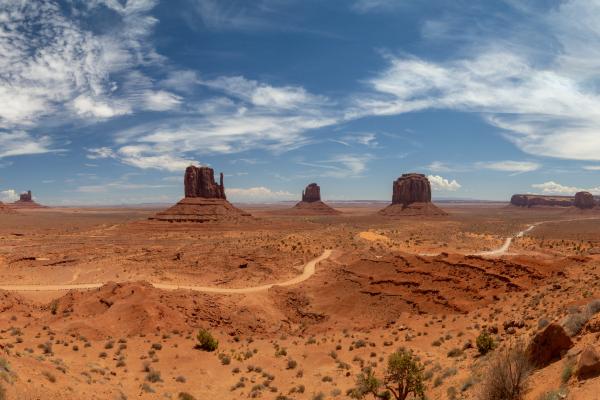Arizona Governor Finalizes Largest Tribal Water Settlement in U.S. History with Historic Agreements

In a groundbreaking move, Arizona State Governor Katie Hobbs signed two historic agreements late last month, settling decades-long water rights claims for four Tribal nations in Arizona. The Northeastern Arizona Indian Water Rights Settlement Agreement (NAIWRSA) and the Yavapai-Apache Nation Water Rights Settlement Agreement (YANWRSA) collectively mark the largest tribal water settlement in U.S. history. These agreements ensure reliable and sustainable water supplies for the Navajo Nation, Hopi Tribe, San Juan Southern Paiute Tribe, and Yavapai-Apache Nation, addressing critical water needs and resolving disputes that have persisted for generations.
Governor Hobbs emphasized the importance of the agreements, stating, "This is a historic moment for the State of Arizona, Tribal nations, and all parties to these agreements. They create a consequential and lasting impact by securing a sustainable water supply for tens of thousands of Arizonans and helping local economies thrive. I'm proud to be a part of this solution that many Arizona families have fought to get for generations."
The NAIWRSA settles claims to water from the Colorado River, Little Colorado River, and local groundwater sources in northeastern Arizona. It also funds vital infrastructure projects to provide safe and reliable water for the Navajo Nation, Hopi Tribe, and San Juan Southern Paiute Tribe. A significant component of the agreement is allocating 5,400 acres to the San Juan Southern Paiute Tribe, establishing a permanent homeland after more than 160 years of shared territory with the Navajo Nation. Tribal leaders celebrated the settlement, with Navajo Nation President Buu Nygren expressing gratitude for the governor's leadership in achieving a historic resolution.
The YANWRSA addresses the Yavapai-Apache Nation's water security while safeguarding the Verde River, a critical resource for the region's cultural and ecological vitality. The agreement includes the construction of a 60-mile pipeline from the C.C. Cragin Reservoir on the Mogollon Rim to deliver water to the Yavapai-Apache Nation and neighboring communities. Chairwoman Tanya Lewis of the Yavapai-Apache Nation highlighted the importance of the settlement, stating, "This comprehensive water rights settlement ensures water certainty for the Yavapai-Apache Nation and protects the Verde River, which is central to our cultural way of life."
These settlements are the result of years of collaboration among Tribal nations, state officials, and local communities, bringing an end to decades of litigation and conflict. Both agreements will require Congressional approval to become effective, a step that leaders are optimistic about achieving. Hopi Tribe Chairman Timothy L. Nuvangyaoma expressed confidence in the coalition of Tribal and State leadership, emphasizing the importance of gaining support from other basin states to advance the legislation.
Governor Hobbs has prioritized partnerships with Arizona's Tribal nations, reversing restrictive policies and championing collaborative approaches to resolving water rights disputes. Under her leadership, the state has renewed its commitment to securing safe and reliable water for all residents while addressing the long-overlooked needs of Tribal communities.
The NAIWRSA and YANWRSA not only provide a sustainable water future for the Tribes but also strengthen water security for neighboring non-tribal communities. These agreements represent a significant step forward in addressing Arizona's water challenges, ensuring long-term resource management, and fostering collaboration and equity.
Learn more by visiting "Governor Hobbs Signs Two Historic Tribal Water Rights Settlement Agreements."
